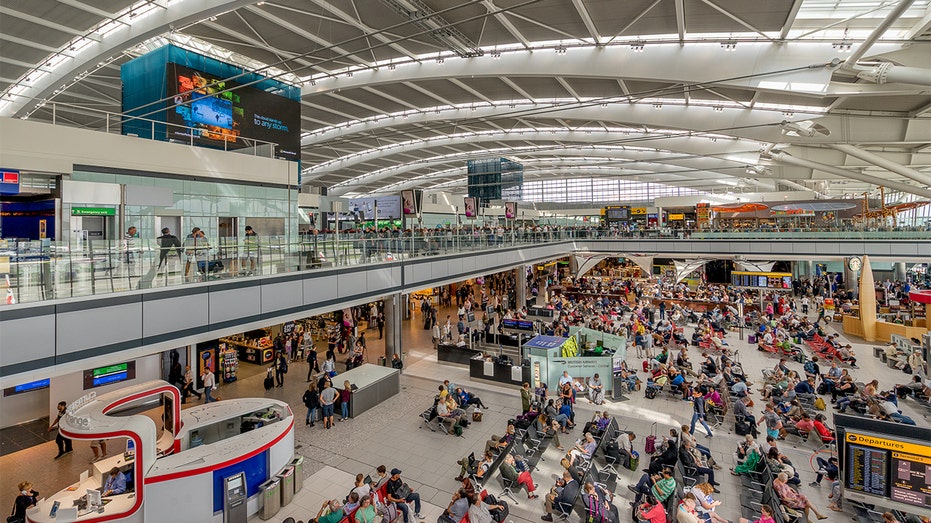The Rise of 'Secondhand Travel': A Smart Way to Save or a Risky Gamble?

Sarah Johnson
August 9, 2025
Brief
Analysis of 'secondhand travel': Understand the pros, cons, and hidden risks of booking canceled vacations for less.
The Rise of 'Secondhand Travel': A Smart Way to Save or a Risky Gamble?
Opening Analysis: Secondhand travel, the practice of buying canceled trips at a discount, is gaining traction as a way for budget-conscious travelers to experience luxury vacations. While promising savings and convenience, it also presents potential pitfalls that consumers need to understand.
The Bigger Picture: The concept of reselling travel bookings has been around for years, primarily in the hotel industry. Websites like Roomer have long facilitated the transfer of unused hotel reservations. However, the emergence of platforms like Transfer Travel and Sparefare, which extend this concept to entire vacation packages, represents a significant shift. This trend is partly fueled by the increasing non-refundable nature of travel bookings, prompting both buyers and sellers to seek ways to recoup costs. The sharing economy, popularized by companies like Airbnb and Uber, has normalized the idea of reselling or sharing assets, paving the way for secondhand travel's acceptance.
What This Really Means: The allure of secondhand travel lies in the potential for significant discounts, often in the range of 20%-30%. For travelers with flexible schedules and destinations, this can be a compelling proposition, especially for all-inclusive resorts or hotel stays. However, the limitations are crucial to consider. The restrictive nature of these bookings means travelers sacrifice the freedom to choose specific destinations, dates, or customize their itineraries. Moreover, the complexities associated with transferring airline tickets can pose a significant barrier. If changes aren't permitted or the airline charges hefty fees, the potential savings can quickly evaporate. This trend reflects broader economic realities, including the desire for affordable luxury experiences and the increasing sophistication of online travel marketplaces.
Expert Perspectives: According to Katy Nastro, a spokesperson for Going, secondhand travel is still relatively unknown, requiring flexibility and adaptability. Industry analysts echo this sentiment and emphasize the need for due diligence. "Travelers should approach secondhand travel with caution," says Henry Harteveldt, a travel industry analyst at Atmosphere Research Group. "While the potential to save money is real, it's essential to weigh the risks and thoroughly research the terms and conditions of each booking."
Data & Evidence: According to a 2024 study by the American Society of Travel Advisors, over 60% of travelers express interest in finding deals and discounts on vacation packages. The rise of secondhand travel aligns with this trend, tapping into a market segment eager to maximize value. Data from Statista shows that the global online travel booking market is projected to reach $813.50 billion in 2025. Even a small percentage of this market adopting secondhand travel can represent a substantial economic opportunity.
Looking Ahead: The future of secondhand travel hinges on several factors. First, the willingness of airlines to accommodate name changes and ticket transfers will play a critical role. If airlines adopt more flexible policies, secondhand travel could become more mainstream. Second, the growth of reputable platforms that provide secure transactions and buyer protection will be essential. As the concept gains wider acceptance, it's likely that more established travel agencies and online travel aggregators will incorporate secondhand travel options into their offerings. This could lead to increased transparency and consumer confidence.
The Bottom Line: Secondhand travel presents a unique opportunity for frugal travelers seeking discounted luxury vacations. However, it's not without risks. Flexibility is key. Travelers must carefully evaluate the terms, compare prices, and understand the limitations before committing to a secondhand booking. With the right precautions, it can be a savvy way to save money, but without due diligence, it can lead to disappointment and unforeseen expenses.
Additional Analysis: While the article rightfully points out the limitations and potential downsides, it overlooks the environmental aspect of secondhand travel. Vacations are often purchased then not taken because of unforeseen circumstances: family emergencies, for example. This can leave hotels and all-inclusive resorts with empty rooms and a loss of resources. Filling what would otherwise be an empty room helps prevent waste.

Topics
Editor's Comments
The emergence of secondhand travel highlights a fascinating shift in consumer behavior. We're seeing a greater willingness to embrace non-traditional methods to access aspirational experiences. However, the lack of standardization and regulation in this space raises concerns. Platforms need clear, transparent policies to protect both buyers and sellers. Furthermore, the long-term impact on hotels and traditional travel agencies remains to be seen. Will they adapt by offering their own version of secondhand bookings, or will they resist? This is a trend worth watching closely.
Like this article? Share it with your friends!
If you find this article interesting, feel free to share it with your friends!
Thank you for your support! Sharing is the greatest encouragement for us.






